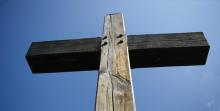Blog by Rob Vandeman
Early Church leader and scholar Jerome quoted the opinion of some that the first psalm is “the preface of the Holy Spirit” to the Psalter. It is certainly a very apt introduction. Two particular themes are found in it, which recur in many other psalms.
The first is the clear-cut distinction between the righteous and the wicked. The Bible as a whole, and specifically the Wisdom Literature, divides humankind into these two absolute categories, and does not recognize a third. Psalm 32, 36 and 112 also compare and contrast the righteous and the wicked.




 Blog by Rob Vandeman
Blog by Rob Vandeman
